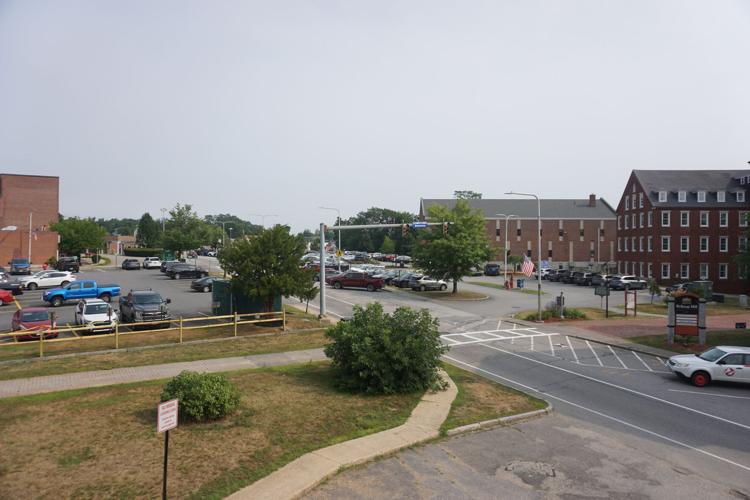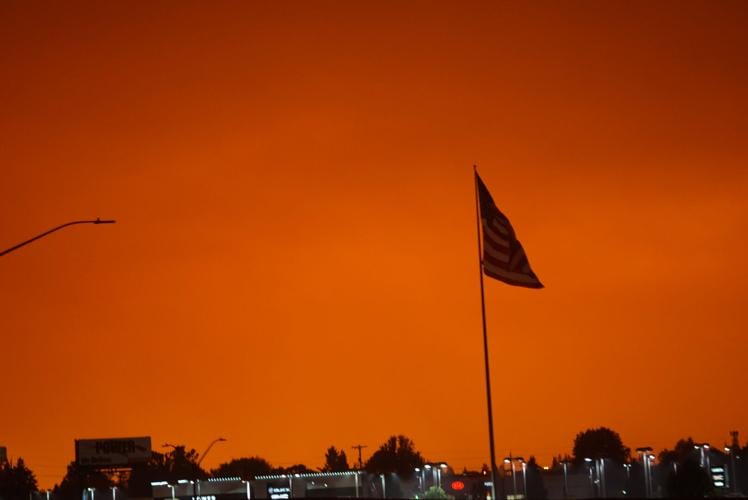Large wildfires in remote regions of Canada sent smoke billowing across the border, inundating northern New England with degraded air quality at the beginning of the week.
“These are related to forest fires going on in Canada,” Chris Legrow, meteorologist at the National Weather Service in Gray, Maine, said Tuesday morning. “Kind of a series there that are putting out smoke.”
Large fires burning across the provinces of Saskatchewan, Alberta and Manitoba are located in remote, difficult-to-access areas which are monitored but not dynamically fought. Wind blowing from west to east brings the smoke over New England, and causes the haze.
In some areas of New England, visibility was less than 6 miles on Tuesday. Legrow said Maine has cleared up more than New Hampshire, Vermont and Massachusetts, and people in those states should notice improved air quality on Wednesday. Winds are expected to shift again somewhere around three days later, potentially causing poor air quality this weekend.
Air quality across the region was particularly bad on Monday, Legrow said.
Meteorologists do their best to watch fire activity and compare the resulting smoke with their weather models and predictions regarding wind, but “fire behavior can be a tough forecast at times,” he said.
Areas west of the region are beginning to clear up, too.
“This is a particularly bad fire season in Canada,” Legrow said, noting it’s in their top five worst since that country started tracking such statistics.
A map of wildfire conditions in Canada shows extreme fire danger in numerous locations across their entire country. Extreme fire risk refers to conditions conducive to fast-spreading, high-intensity crown fires which are difficult to control. Suppression actions are limited to the fire’s flanks, with only indirect actions possible against the fire’s head.
According to Natural Resources Canada, over 8,000 fires occur each year, resulting in the burning of 2.1 million hectares. Lighting causes about 50% of all fires, but accounts for 85% of land burned.
Staff at the New Hampshire Department of Environmental Services issued an air quality alert for particle pollution set to expire at 11 p.m. on Tuesday night. Most of the state is included in their alert, including just about all municipalities across the Lakes Region.
Degraded air quality can pose risks, particularly to the health of sensitive individuals.
NHDES staff declared Monday to be Air Quality Action Day.
"Wind patterns are transporting waves of smoke from these fires across much of the Northeast and New Hampshire," a notice on the declaration reads. "In addition to these health effects, these smoke plumes also diffract light causing a hazy appearance in the sky and reduced visibility of distant objects. There is potential for high particle pollution to persist over the next couple of days."
Severity of health effects increases as the concentration of fine particles increases, according to NHDES staff.
“We do have some recommendations,” Legrow said.
It’s important to monitor how you feel. While it’s qualified as “poor air quality for sensitive people” at present, degraded air quality can affect anybody. Pay attention to if you’re experiencing headache, fatigue and throat irritation, for example, and get to somewhere with better air quality if you do notice those things.
Sensitive people include children and older adults; anyone with a lung disease like asthma, emphysema or bronchitis; and people who are active outdoors, according to the NHDES alert. Environmental agencies in Vermont, Massachusetts and New York issued similar air pollution alerts over the same timeframe.
You can view the New Hampshire air quality index and map by navigating to www4.des.state.nh.us/airdata. As of Tuesday morning, Belknap County had the best air quality among New Hampshire counties, though it was still moderately poor.
The Laconia library is one such place open to the public that could offer respite from air pollution.
“Even healthy individuals may experience mild health effects and should consider limiting strenuous or prolonged outdoor activities,” the alert reads, in part.



















(1) comment
The Governor , Kelley Ayotte, the NH Attorney General and many other politicians should be interviewed and asked to bring a class action against these Canadian provinces and Canada. If the shoe was on the other foot, you can bet your last buck, Canada would be demanding reparations and would sue for damages.
Why do these people seek public office and then fail to protect the public. Canada causes this by negligent, if not criminal, forestration processes , practices and procedures.
Welcome to the discussion.
Log In
Keep it Clean. Please avoid obscene, vulgar, lewd, racist or sexually-oriented language.
PLEASE TURN OFF YOUR CAPS LOCK.
Don't Threaten. Threats of harming another person will not be tolerated.
Be Truthful. Don't knowingly lie about anyone or anything.
Be Nice. No racism, sexism or any sort of -ism that is degrading to another person.
Be Proactive. Use the 'Report' link on each comment to let us know of abusive posts.
Share with Us. We'd love to hear eyewitness accounts, the history behind an article.